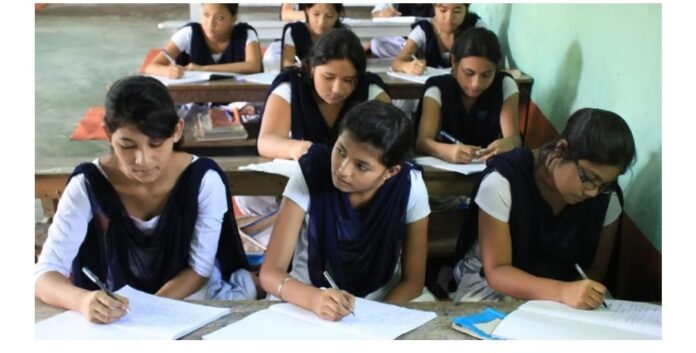In response to the scorching heat wave gripping the region, the Karbi Anglong Autonomous Council (KAAC) has recently made the decision to modify school timings in two districts of Diphu. The move aims to ensure the well-being and safety of students and educators during these sweltering conditions. The decision comes as temperatures continue to soar in Assam, prompting local authorities to take proactive measures.
Adapting to the Heat Wave: The KAAC’s decision to alter school timings reflects a proactive approach to safeguarding the health and comfort of students and teachers. With the prevailing heat wave causing temperatures to rise to unprecedented levels, adjustments in schedules have become essential. By revising the school timings, educational institutions in Diphu districts aim to mitigate the potential risks associated with extreme heat and create a conducive learning environment.
Prioritizing Student Well-being: The primary motivation behind the change in school timings is to prioritize the well-being of students. The scorching temperatures can lead to exhaustion, dehydration, and other heat-related health concerns, affecting students’ focus and performance in classrooms. By rescheduling the school day, students will have the opportunity to avoid the peak heat hours and attend classes during cooler periods of the day, promoting better concentration and overall academic performance.
Collaboration with Stakeholders: The KAAC’s decision to modify school timings in Diphu districts was made after consultations with various stakeholders, including education authorities, teachers, parents, and students. Their collective input and concerns regarding the prevailing heat wave were taken into account before finalizing the new schedules. This collaborative approach ensures that the changes address the needs and concerns of all parties involved in the educational ecosystem.
Efficient Use of Resources: Additionally, the rescheduling of school timings allows for efficient use of resources, particularly in terms of energy consumption. With the revised schedules, schools can adjust their cooling systems to align with the altered hours of operation, reducing energy consumption during the hottest parts of the day. This not only contributes to environmental conservation but also helps schools manage their operational costs more effectively.
Communication and Awareness: To ensure seamless implementation of the revised school timings, the KAAC has emphasized effective communication with all stakeholders. Schools have been instructed to inform students, parents, and staff members about the changes well in advance. Additionally, local authorities are actively disseminating information through various mediums, such as social media platforms, official websites, and community announcements, to ensure widespread awareness and understanding of the new schedules.
Amidst the prevailing heat wave in Assam, the Karbi Anglong Autonomous Council (KAAC) has taken proactive measures to modify school timings in Diphu districts. By prioritizing student well-being and collaborating with stakeholders, the KAAC aims to create a safe and comfortable learning environment during these extreme weather conditions. This timely adjustment demonstrates the council’s commitment to adapt and respond to the evolving needs of the educational community, ensuring the continued academic progress of students in Diphu.


